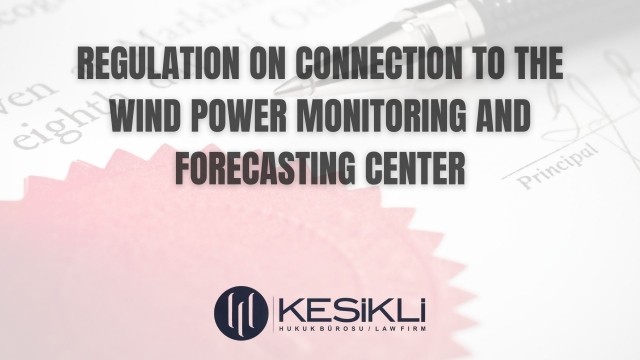Having been published on the Official Gazette No. 31322 dated 02.12.2020, the Law No. 7257 Regarding Amendments to the Electricity Market Law and Other Laws (the “Law”) brings important changes to the Value Added Tax Law No. 3065, Natural Gas Market Law No. 4646, Mining Law No. 3213, Public Procurement Law No. 4734, Law No. 5346 Regarding Utilization of Renewable Energy Sources For the Purpose of Generating Electricity Energy, Geothermal Resources and Natural Mineral Waters Law No. 5686 and Electricity Market Law No. 6446.
Important articles of the Law No. 5346 Regarding Utilization of Renewable Energy Sources for the Purpose of Generating Electricity Energy (the “RES Law”) that were amended by the Law are analysed in our article.
1. Amendments to the Definitions of Renewable Energy Sources, Biomass and Geothermal Resources
“Biogas (including landfill gas)” has been excluded from the scope of renewable energy sources (“RES”) definition which has been defined as “Nonfossil energy resources such as hydraulic, wind, solar, geothermal, biomass, wave, current and tidal energy” according to the amendments made to the definitions article of the RES Law by the Law.
Additionally, biomass definition within the scope of the RES Law has been amended as “Resources generated from municipal wastes (including landfill gas) as well as vegetable wastes and agricultural wastes that are not feeds, forestry products excluding industrial wood and by-products coming out from processing of waste tires and industrial waste muds and sublimination muds” and geothermal resources definition has been amended as *“The natural water, steam and gases comprising melted substances and gases with temperature permanently higher than the regional atmospheric average due to the natural heat in the earth crust and water as well as vapor and gases obtained from hot dry rocks.”*
2. Amendments to the Procedures and Principles Regarding RES Supporting Mechanism
Significant amendments have been made to the Article 6 of the RES Law regulating procedures and principles regarding RES supporting mechanism by the Law. In line with these amendments, the scope of production license holders that may be subject to the prices regulated under the Schedule I (the “Schedule”), an appendix to the RES Law, is extended. While this Schedule used to be applicable for production license holders that are subject to RES Supporting Mechanism provided that they have initiated their operations between the effective date of the RES Law, 18.05.2005 and 31.12.2015 for 10 years, such period has been extended in a way that such Schedule may be applied to the production license holders that have initiated their operations or that are to initiate their operations until 31.12.2020 for 10 years.
Additionally, the prices to be applied to renewable energy plants in the Schedule are updated. The President is granted with the authority to determine the prices and periods to be applied as per RES Law to the electricity generation plants holding RES Certificate that are to be commissioned after 31.12.2020 provided that such prices do not exceed the prices regulated under the Schedule.
Procedures and principles regarding the following matters that are not regulated under the RES Law will be determined by the President:
- Procedures and principles regarding the prices to be applied for the unlicensed production plants that are switching to licensed production activities provided that 15% of the hourly market clearing price in the electricity market throughout its license period as of expiry of 10-years period is paid to the RES Supporting Mechanism as a contribution fee and/or the prices to be applied for the surplus electricity energy generated within the scope of unlicensed production activities provided that such prices do not exceed market clearing price in the electricity market,
- Principles and procedures in relation to RES Supporting Mechanism to be applied in Turkish Liras to the power plants to be commissioned after 30.06.2021 and update of the prices.
Licensed power plants that are commissioned within the scope of the RES Law and would prefer to be subject to the RES Supporting Mechanism in the following calendar year are required to obtain RES Certificate and to make an application to the Energy Market Regulatory Authority (the “EMRA”).
Time periods determined under the RES Supporting Mechanism shall commence from the commissioning date for the plants in operation and shall commence from the date of operation for those that have not been commissioned yet. It should also be noted that those subject to the RES Supporting Mechanism cannot leave the mechanism in the same year they joined the mechanism.
Elektrik Piyasası İşletme Anonim Şirketi (“EPİAŞ”) (in English: Electricity Market Operation Company) shall announce total amount of RES for each invoice period and shall determine proportion of payment obligation of each supplier accordingly. In determination of proportion of payment obligation, amount of electricity energy that is generated from renewable energy resources within the scope of the RES Law and that has been sold in the free market without being subject to the RES Supporting Mechanism shall not be included in these calculations within the scope of the RES Law. The amounts that the electricity suppliers are obliged to pay shall be determined and invoiced to the relevant supplier and such collection shall be paid to the legal entities that are subject to RES Supporting Mechanism in proportion to their shares. In this vein, principles and procedures regarding application including EPİAŞ shall be regulated under a regulation to be published by the EMRA.
Additionally, it should be highlighted that annual electricity production amount to be inserted into the licenses of the renewable energy power plants is accepted as maximum annual production amount that can be generated the installed power in these plants according to their resources within the scope of the RES Law.
Legal entities that are generating electricity from renewable energy sources but that are not preferring to be subject to RES Principles and Procedures may also make sales in the free electricity market within the scope of their licenses.
3. Regulations Regarding Unlicensed Electricity Production Activities
Together with the amendments made to the Article 6/A of the RES Law, “production with exemption” system has been abolished and principles and procedures regarding unlicensed electricity production have been regulated. Accordingly, unlicensed real and legal persons that are engaged in electricity generation activities from renewable energy sources for their consumption may benefit from the prices on the Schedule for ten years provided that they provide the amount of electricity energy exceeding their consumption to the distribution system. In this vein, such electricity energy provided to the distribution system shall be purchased by the responsible supply company. Electricity energy that were purchased by the relevant companies within the scope of this article shall be deemed as generated and provided to the system within the scope of the RES Supporting Mechanism by the responsible supply company.
4. Regulations Regarding Use of Domestic Goods
According to the amendments made to the Article 6/B of the RES Law, if mechanical and/or electro-mechanical parts used in the renewable energy plants having been commissioned before 30.06.2021 by the license holder legal entities within the scope of the RES Law are produced domestically, the prices in the Schedule II, an appendix to the RES Law, shall be added to the Prices determined under the Schedule I for the electricity energy generated in these plants and provided to the transmission or distribution system for five years as of commissioning of the relevant power plant.
While this article used to cover the power plants that are commissioned before 30.06.2015, now such period is extended until 30.06.2021 after the amendment.
Domestic contribution prices to be applied in Turkish Liras, update of these prices, application period and other principles and procedures regarding application for the power plants holding RES Certificate and using local components that are to be commissioned after 30.06.2021 and unlicensed power plants to be established for the purpose of meeting the needs of the consumption plants will be determined and announced by the President. Principles and procedures in relation to definition, standards, certification and inspection of the local components will be regulated under a regulation to be published by the Ministry of Energy.
@Kesikli Law Firm
Let's Get Connected!



